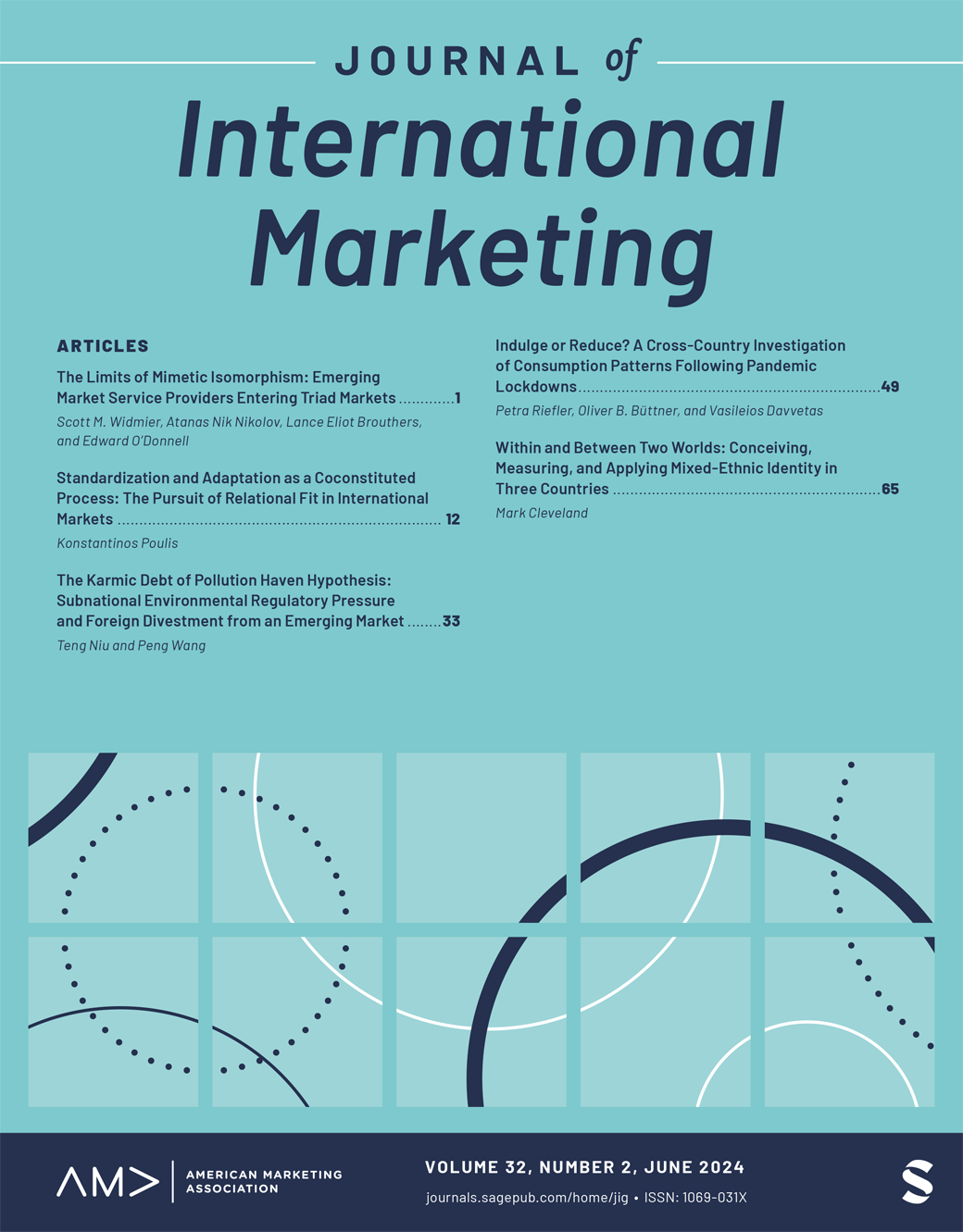Expatriate Consumers’ Adaptations and Food Brand Choices: A Compensatory Control Perspective
IF 4.9
2区 管理学
Q1 BUSINESS
引用次数: 7
Abstract
The number of expatriates has been steadily growing during the last two decades. For these reasons, academia has exhibited a growing research interest in expatriates’ food consumption choices. Although interest is there, the extant literature is inconclusive about conditions under which expatriate consumers make trade-offs between host-country (local) and global food products and brands. The present study presents mechanisms that explain expatriate consumers’ compensatory coping behaviors and choices between local versus global food brands. By drawing on compensatory control theory and the person–environment fit framework, the authors test the influence of adaptation efforts and retail system properties on expatriate consumers’ food brand choices. Survey findings from 232 expatriates who currently live in five Middle Eastern countries reveal that a higher engagement in adaptation efforts (acculturation and general adjustment) leads to a dominant preference for local (vs. global) food brands. Moreover, this study illuminates the importance of retail system properties by showing that a host country’s retail system development positively moderates the relationship between adaptation efforts and local food brand choices, whereas retail similarity has a negative impact.外籍消费者适应与食品品牌选择:补偿控制视角
在过去的二十年里,移居国外的人数一直在稳步增长。由于这些原因,学术界对外籍人士的食品消费选择表现出越来越大的研究兴趣。尽管存在兴趣,但现有文献对外籍消费者在东道国(当地)和全球食品和品牌之间做出权衡的条件没有定论。本研究揭示了外籍消费者的代偿应对行为和在本土与国际食品品牌之间的选择机制。本文运用补偿控制理论和人-环境匹配框架,检验了适应努力和零售系统属性对外籍消费者食品品牌选择的影响。对目前居住在五个中东国家的232名外派人员的调查结果显示,对适应工作(文化适应和一般调整)的参与度较高,导致对当地(相对于全球)食品品牌的偏好占主导地位。此外,本研究通过表明东道国的零售系统发展正调节适应努力与当地食品品牌选择之间的关系,而零售相似性具有负向影响,阐明了零售系统属性的重要性。
本文章由计算机程序翻译,如有差异,请以英文原文为准。
求助全文
约1分钟内获得全文
求助全文
来源期刊

Journal of International Marketing
BUSINESS-
CiteScore
8.70
自引率
17.20%
发文量
28
期刊介绍:
As the globalization of markets continues at a rapid pace, business practitioners and educators alike face the challenge of staying current with the developments. Marketing managers require a source of new information and insights on international business events. International marketing educators require a forum for disseminating their thoughts and research findings. Journal of International Marketing(JIM) is an international, peer-reviewed journal dedicated to advancing international marketing practice, research, and theory. Contributions addressing any aspect of international marketing management are published each quarter.
 求助内容:
求助内容: 应助结果提醒方式:
应助结果提醒方式:


